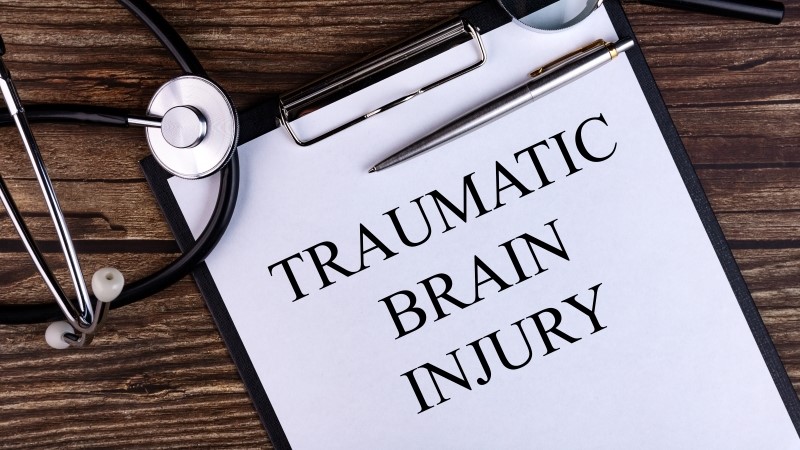A traumatic brain injury is basically an injury to the brain caused by trauma or an impact to the head. The severity of the injury and the resulting effects can range from a mild concussion all the way to death, and will depend on the severity of the impact or trauma.
In this article, we will start by looking at how traumatic brain injuries occur. Then we’ll look at some of the most common effects of traumatic brain injuries, along with how they affect those who suffer from them and what you can do if it happened to you or someone you love.
Causes of Traumatic Brain Injuries
There are two major kinds of brain injuries: closed and open. Closed brain injuries happen when the head is hit but the skull is not broken. Instead the brain is shaken back and forth inside the skull, which causes it to get bruised and torn in the process. This can happen during falls, accidents, and even sports, such as during boxing matches or football games. It can also happen when a baby is shaken.
Open brain injuries happen when the skull is broken or penetrated, for example by a gunshot or during an accident. Gunshots are generally the result of violence or suicide, or, more rarely, of accidents.
As you read on, you’ll find out how severely these conditions can affect the lives of those who suffered those injuries. If a traumatic brain injury happened to you or a loved one, especially during a slip and fall incident or a car accident, you should talk to an experienced personal injury lawyer to see if you or they can be compensated.
What Are the Effects of Traumatic Brain Injury?
When the brain is traumatized by severe injuries, it can no longer work like it is supposed to. The effects of traumatic brain injury can range from slight impairment, such as a light concussion, all the way to coma and death.
In addition, the long term effects of moderate or severe traumatic brain injuries can severely affect a person’s life and well-being. Anyone who has suffered a traumatic brain injury in a car accident should get in touch with an experienced car accident attorney as soon as possible. Now, let’s look at five common effects of traumatic brain injuries.
1) Concussions
Concussions are the most common effect of traumatic brain injuries. Many cases are classified as mild, but that doesn’t mean they are not serious, especially as the effects can linger or new symptoms can appear and intensify later on.
Concussions usually cause a period of unconsciousness and are classified in terms of how long that stretch of unconsciousness lasts, from seconds to several minutes to hours and even days.
A very light concussion may hardly involve any unconsciousness at all. Longer periods of unconsciousness, however, indicate more serious concussions. At the severe end of the scale, the victim may be unconscious for a fairly long time or even lapse into a coma.
While there are various instruments available that can scan the brain to determine the type and extent of the injuries that occurred, they cannot see everything that goes on inside the brain. The tools continue to get better, but they still have limitations.
2) Cognitive Deficits
Among the most frequent effects of traumatic brain injuries, after concussions, and often in addition to concussions, are a range of cognitive deficits.
These range from shortened attention spans, confusion, amnesia, and other less serious memory problems. People who suffer from these kinds of cognitive deficits also tend to have problems with their judgment and find it hard to understand abstract or complex concepts.
It’s easy to see how these kinds of cognitive deficits can make it difficult for them to live in a normal environment, or resume their former job performance. There are therapeutic interventions that can help, but even in a best case scenario, it will be a difficult and long process.
3) Communication and Language Challenges
Communication and language difficulties are another type of cognitive deficits that have a major effect on a person’s ability to function in daily life. Normally, we take it for granted that everyone can communicate clearly and with relative ease.
But that is not the case for someone suffering from aphasia, who has difficulty with speaking and understanding normal speech and especially
with finding the right words. They may even have difficulty with forming sentences, identifying objects, as well as with reading and writing.
4) Motor Deficits
Traumatic brain injury can also affect motor function and cause severe difficulty with functioning in daily life. These problems can include poor balance and coordination, weakness and decreased endurance, tremors, and even swallowing problems.
Related to motor deficits are perceptual and sensory deficits, which can include difficulty with keeping track of where limbs are as they move through space. Affected people may also experience changes in their senses, such as taste, smell, vision, and so on.
5) Functional And Social Deficits
The various impairments listed above lead to additional difficulties with activities that we normally take for granted, such as bathing, eating, paying bills and shopping for groceries. Of course, driving is no longer an option either.
In addition, interpersonal relationships are also affected. It’s challenging to make friends when one has difficulties dealing with the nuances of social interactions.
If you find yourself affected by the above effects of a traumatic brain injury, or if they are affecting a loved one, you should take action quickly. Talk to an experienced personal injury attorney as soon as possible. Just call or email us for a free case evaluation. We’ll be happy to help you.




